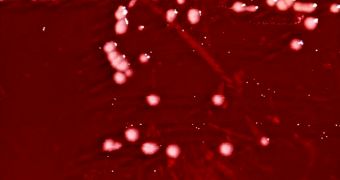Experts from the Netherlands Organization for Scientific Research (NWO) and the Delft University of Technology (TU Delft) managed to develop a technique for producing high-quality, environmentally friendly products such as bioplastics from fruits, vegetables and plant wastes.
This was done by essentially training a certain type of bacteria to be able to catalyze and convert all the main sugars contained in the biomass into plastics and other eco-friendly products. The study was part of researcher Jean-Paul Meijnen's PhD thesis.
The scientist, who is based at TU Delft, was funded under the NWO B-Basic program, and will present the full details of the finding on Monday, November 22, at the university.
He explains that the interest he developed in bioplastic compounds has widespread echoes around the world. Many research teams are currently investigating this class of materials, as well as methods of producing them without harming the environment, and at low costs.
When this field of research first developed, there were numerous technical issues plaguing it, but most of them have since been solved. The only one that endured was efficiency. Other methods can only convert a small percentage of the sugars in the plants.
With the new approach, the amount of sugars that are converted into processable materials is nearly maximum. As such, it will soon become possible to turn orange peels into car bumpers and sunglasses, experts at the university say.
Meijnen accomplished this by focusing his attention on the bacteria Pseudomonas putida S12. He and his team first analyzed the microorganism's feeding patterns, and then moved on to training them for their goal.
One of the main materials that is used in bioconversion is lignocellulose, a substance that contains lignin and cellulose, the main compounds that give plants their rigidity. Using hydrolysis, the substance can be broken down into simple sugars.
Microorganisms then take over, and convert the sugar lignin and cellulose are made out of into molecules that can be used as a basis for compounds such as bioplastics.
“Unfortunately, the production of plastics from bio-wastes is still quite an expensive process, because the waste material is not fully utilized,” the PhD candidate says. With the new level of efficiency however, costs are bound to decrease significantly.
Further research will undoubtedly refine the process Meijnen developed, and lower the costs and production times associated with synthesizing bioplastic compounds even further.

 14 DAY TRIAL //
14 DAY TRIAL //